
Janjanbureh Island: A Serene Slice of Gambian History
Janjanbureh Island, nestled in the heart of The Gambia, is a treasure trove of history and natural beauty. Once known as Georgetown, this island offers a quiet retreat from the bustling city life, where the past and present coexist in harmony. The island is located on the Gambia River, making it an ideal spot for nature lovers and history buffs alike. Visitors can explore the remnants of colonial-era architecture, such as the famous McCarthy Square, and learn about the island's rich history at the local museum. The island played a significant role in the transatlantic slave trade, and the museum provides a deep insight into this dark chapter of history. Nature enthusiasts can enjoy bird watching, as the island is home to a diverse range of bird species. The tranquil waters of the Gambia River also offer opportunities for fishing and boat tours. The lush greenery and serene atmosphere make it a perfect place for a relaxing getaway. Janjanbureh Island is more than just a destination; it's a journey through time and nature. Whether you're wandering through the historical sites or soaking in the natural beauty, the island promises an unforgettable experience.
Local tips in Janjanbureh Island
- Carry cash, as ATMs are scarce on the island.
- Visit the island during the dry season from November to May for the best weather.
- Hire a local guide for a more informative tour of the historical sites.
- Pack insect repellent to protect against mosquitoes.
- Respect local customs and dress modestly, especially when visiting villages.
Janjanbureh Island: A Serene Slice of Gambian History
Janjanbureh Island, nestled in the heart of The Gambia, is a treasure trove of history and natural beauty. Once known as Georgetown, this island offers a quiet retreat from the bustling city life, where the past and present coexist in harmony. The island is located on the Gambia River, making it an ideal spot for nature lovers and history buffs alike. Visitors can explore the remnants of colonial-era architecture, such as the famous McCarthy Square, and learn about the island's rich history at the local museum. The island played a significant role in the transatlantic slave trade, and the museum provides a deep insight into this dark chapter of history. Nature enthusiasts can enjoy bird watching, as the island is home to a diverse range of bird species. The tranquil waters of the Gambia River also offer opportunities for fishing and boat tours. The lush greenery and serene atmosphere make it a perfect place for a relaxing getaway. Janjanbureh Island is more than just a destination; it's a journey through time and nature. Whether you're wandering through the historical sites or soaking in the natural beauty, the island promises an unforgettable experience.
When is the best time to go to Janjanbureh Island?
Iconic landmarks you can’t miss
Stone Circles of Gambia
Explore the Stone Circles of Gambia, a UNESCO World Heritage site rich in history and mystery, showcasing ancient burial practices and cultural heritage.
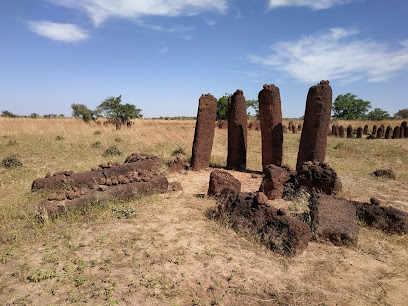
Jang Jang Burreh Camp
Experience the charm of Jang Jang Burreh Camp, your perfect retreat for exploring the natural beauty and culture of the River Gambia.
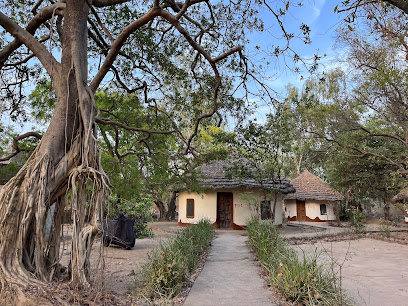
Kunta Kinteh island / St. James Fort
Discover the profound history of Kunta Kinteh Island and St. James Fort, a UNESCO World Heritage site in The Gambia, rich with cultural significance.
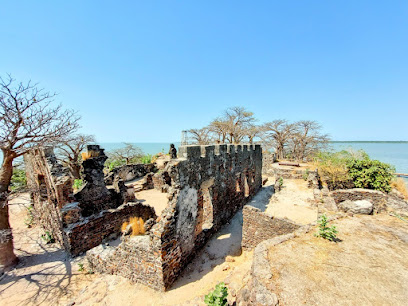
Maccarthy Island
Explore Maccarthy Island, a serene escape in The Gambia, rich in natural beauty and vibrant local culture, perfect for travelers seeking tranquility.
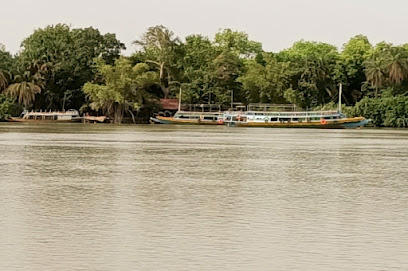
Bendula Bar
Experience authentic Gambian flavors and warm hospitality at Bendula Bar in Janjanbureh, a must-visit restaurant for every traveler.
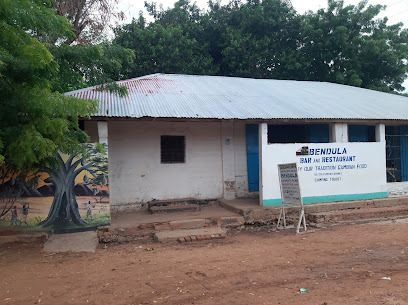
Slave House
Discover the historical significance of the Slave House in Janjanbureh, a landmark that reflects the poignant legacy of the slave trade in The Gambia.
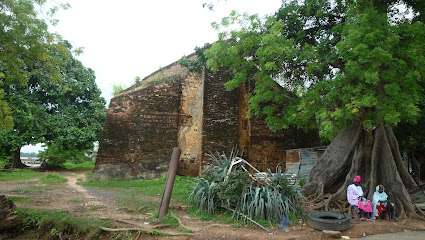
Camping Sitaba Lodge
Discover the beauty of nature at Camping Sitaba Lodge in Janjanbureh, where adventure meets tranquility in The Gambia.
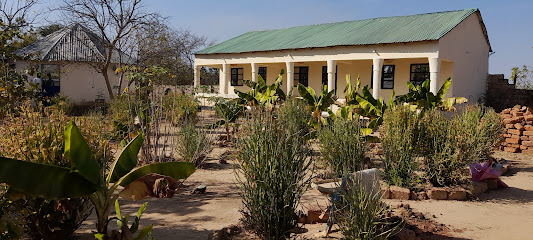
Baobolong Camp and Guest House
Discover the serene beauty and local charm of Baobolong Camp and Guest House in Janjanbureh, a perfect getaway in The Gambia.
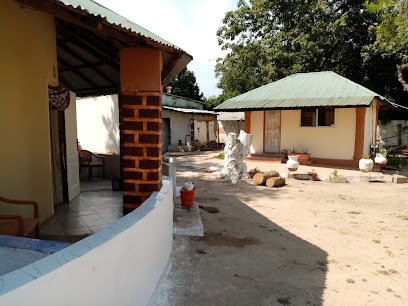
FairPlay Gambia River Holidays
Experience the natural beauty of Gambia River with FairPlay Gambia River Holidays, the premier boat rental service for unforgettable adventures.
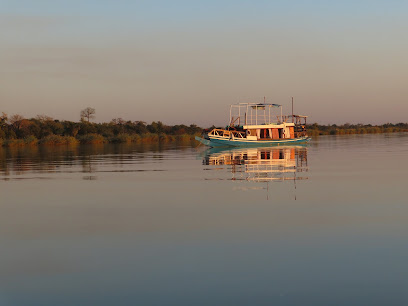
Musa's Garden Lodge
Discover tranquility and cultural richness at Musa's Garden Lodge in Janjanbureh, Gambia, your perfect retreat surrounded by nature.

Gambia Tourism and Hospitality Institute
Explore the Gambia Tourism and Hospitality Institute for an enriching cultural experience and insights into the Gambian hospitality industry.
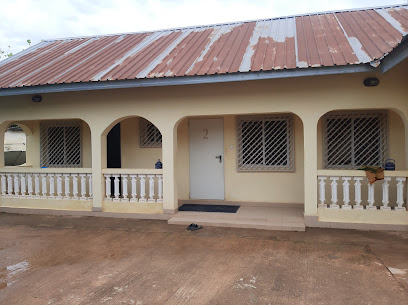
Kankurang Centre
Discover the vibrant cultural heritage of The Gambia at Kankurang Centre in Janjanbureh, where tradition meets artistry in a captivating museum experience.
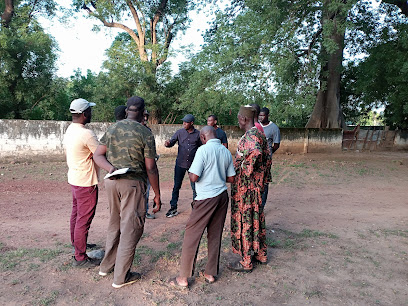
Janjanbureh Area Council
Discover the unique cultural heritage and stunning landscapes of Janjanbureh Area Council in The Gambia, a captivating destination for every traveler.
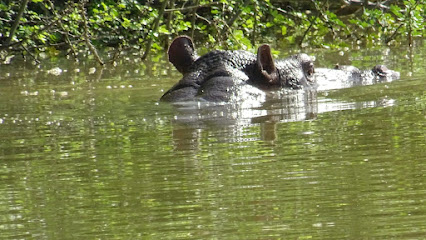
Unmissable attractions to see
Stone Circles of Gambia
Explore the Stone Circles of Gambia, a UNESCO World Heritage Site rich in history, culture, and stunning ancient architecture.
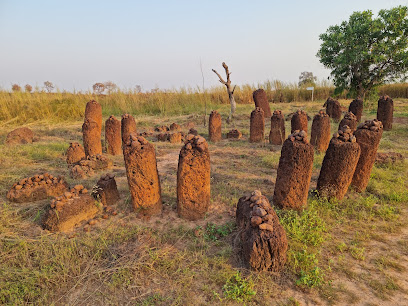
Maccarthy Island
Explore Maccarthy Island: A serene escape showcasing stunning landscapes, rich traditions, and vibrant wildlife in The Gambia.
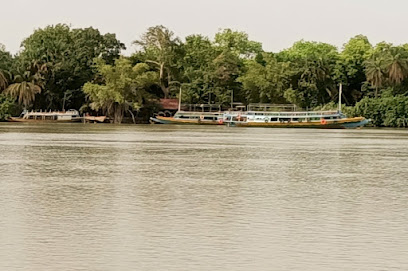
Slave House
Discover the rich and poignant history at the Slave House in Janjanbureh, a landmark telling stories of resilience and cultural heritage.
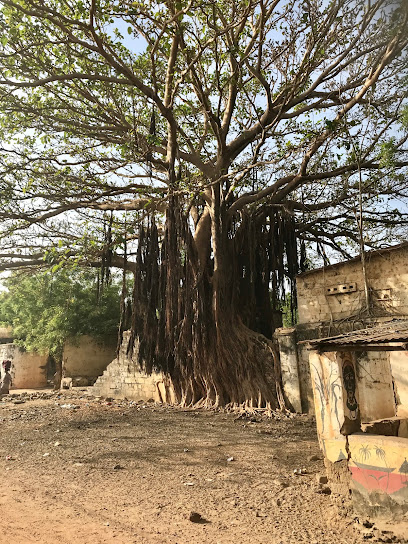
Kankurang Centre
Explore the Kankurang Centre in Janjanbureh, a cultural museum showcasing the rich traditions and history of The Gambia for an immersive travel experience.
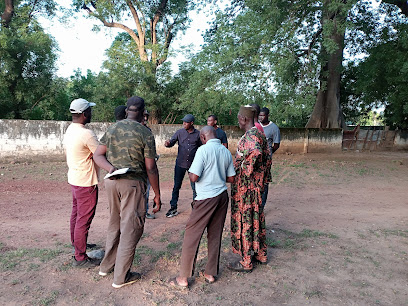
Sapu Rice Fields
Explore the serene Sapu Rice Fields – a birdwatcher's paradise and a glimpse into Gambia's rich agricultural heritage.
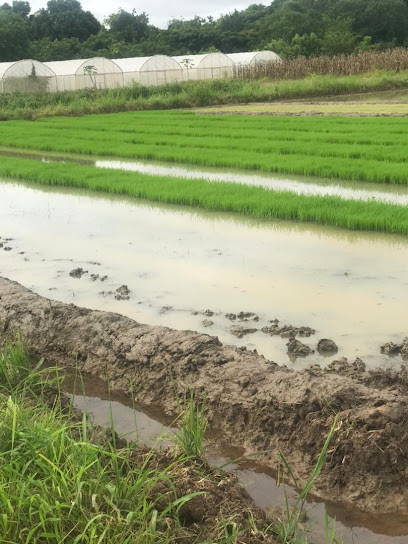
Bantamba camping site
Discover tranquility at Bantamba Camping Site, where lush landscapes and serene environments create the perfect escape for nature enthusiasts and adventure seekers.
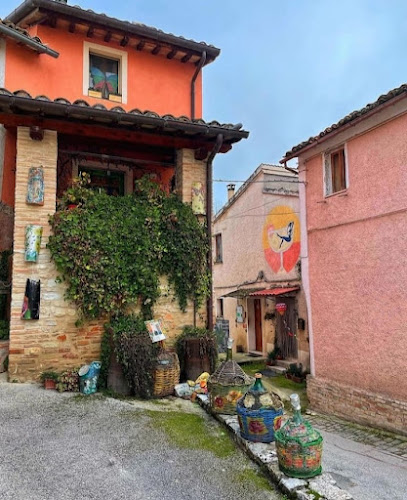
Freedom Tree Monument
Explore the Freedom Tree Monument in Janjanbureh, a symbol of resilience and liberation in Gambian history.
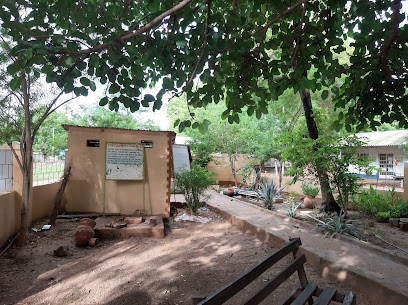
Le Guib
Experience the vibrant culture and breathtaking landscapes at Le Guib, a must-visit tourist attraction in Alimaka, Gambia.

Boussou mbalo 1
Experience the rich cultural heritage and picturesque landscapes at Boussou Mbalo 1, a must-visit tourist attraction in Bureng, The Gambia.

Fort James Island
Discover the rich history and natural beauty of Fort James Island, a hidden gem on the Gambian coast, perfect for relaxation and exploration.

Kunkilling Forest Park
Explore the tranquil beauty of Kunkilling Forest Park in Janjanbureh, Gambia, a perfect retreat for nature lovers and adventure seekers.

Nianijai swampy area, a potential for rice cultivation
Explore the serene beauty and agricultural significance of the Nianijai swampy area, a unique tourist attraction in The Gambia.

Banta island ️
Explore the natural wonders of Banta Island, an idyllic hiking destination in Gambia, rich in biodiversity and cultural experiences.

AQA
Discover AQA in Janjanbureh: A tranquil blend of nature and Gambian culture, perfect for adventurous tourists seeking authentic experiences.

Gassang Forest Park
Explore Gassang Forest Park, a tranquil state park in Doki Alla, rich in flora and fauna, perfect for nature lovers and outdoor enthusiasts.

Essential places to dine
Bendula Bar
Savor traditional Gambian dishes at Bendula Bar in Janjanbureh - where great food meets warm hospitality.
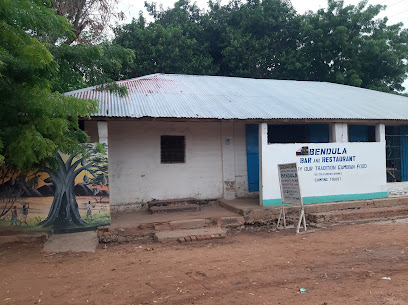
HAPPY CORNER LODGE BAR AND RESTURANT
Discover authentic Gambian flavors at Happy Corner Lodge Bar and Restaurant in Janjanbureh - a culinary haven for every traveler.
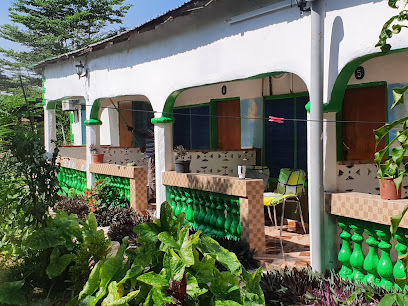
Cheers Bar & Restaurant and Musa River Side Garden
Discover authentic Gambian cuisine at Cheers Bar & Restaurant with stunning views of the Musa River in Janjanbureh.
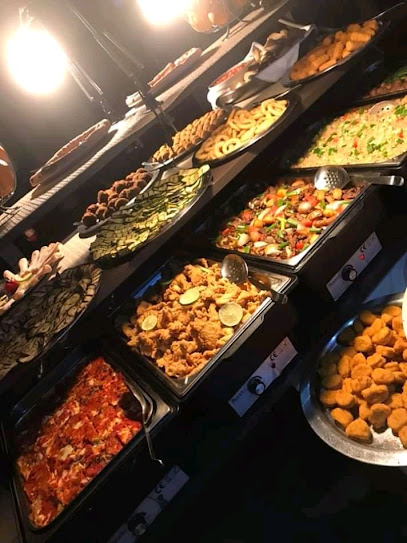
Markets, malls and hidden boutiques
Jang Jang Burreh Camp
Discover the beauty of The Gambia at Jang Jang Burreh Camp, where tranquility meets adventure in a stunning natural setting.
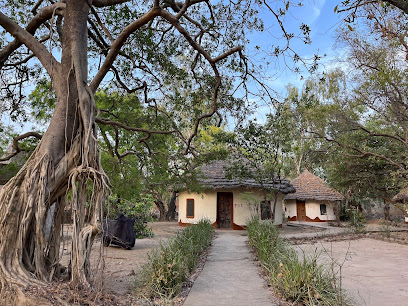
TOP-SHOP
Explore TOP-SHOP in Senegambia for unique handicrafts, vibrant art, and authentic Gambian souvenirs that celebrate local culture.
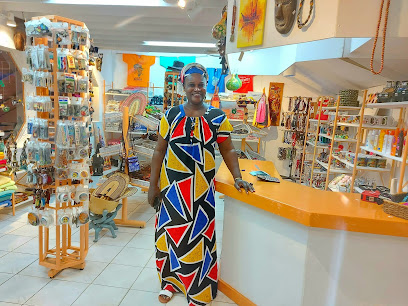
Halabaid Trading Enterprises paradise supermarket
Explore local flavors at Halabaid Trading Enterprises Paradise Supermarket in Farafenni, a vibrant hub for Gambian culture and culinary delights.
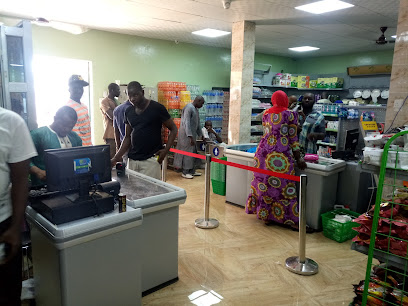
Baobolong Camp and Guest House
Experience the tranquility of Baobolong Camp and Guest House, your gateway to the natural beauty and rich culture of Janjanbureh.
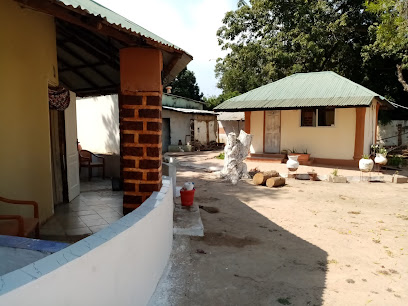
Bansang Market
Explore the colorful Bansang Market in The Gambia, where vibrant stalls and local flavors create an unforgettable shopping experience.
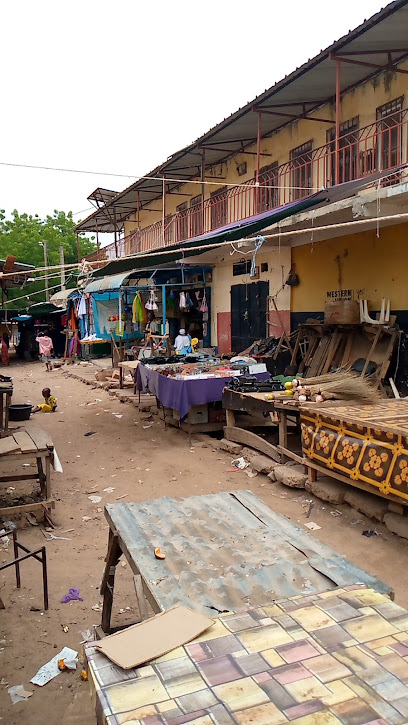
Musa's Garden Lodge
Experience the serene beauty and cultural richness of Musa's Garden Lodge in Janjanbureh, your perfect getaway in Gambia.

Sare Kokeh
Discover unique artisanal home goods at Sare Kokeh, Domel Jawo's charming store offering a blend of culture and craftsmanship.

Emporium Banjul
Discover the vibrant world of Gambian textiles at Emporium Banjul, where tradition meets craftsmanship in every fabric.
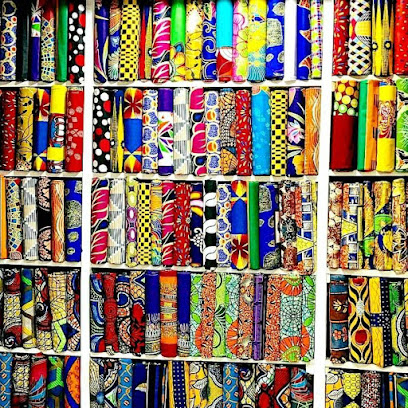
Costa road
Discover local flavors and essentials at Costa Road Grocery Store, where the vibrant culture of Bureng meets everyday convenience.
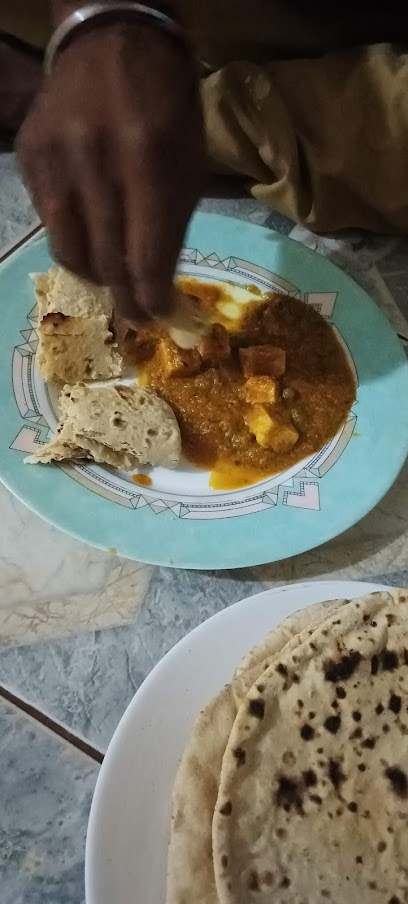
Soma Saremawdou Market
Discover the heart of local culture at Soma Saremawdou Market, a vibrant hub for fresh produce, crafts, and authentic Gambian experiences.
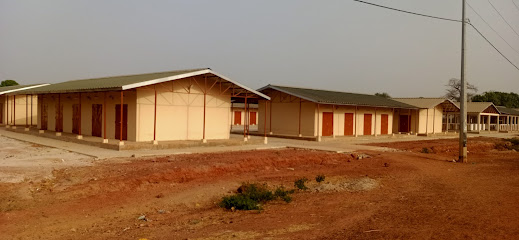
Al Islam shopping father &son
Discover the charm of Gambia at Al Islam Shopping Father & Son, where local treasures await in a vibrant shopping atmosphere.
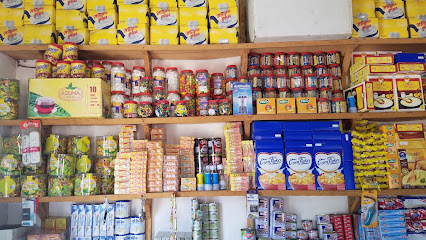
Talamanca Lodge
Discover the tranquility and cultural richness of Janjanbureh at Talamanca Lodge, your perfect getaway in Gambia.
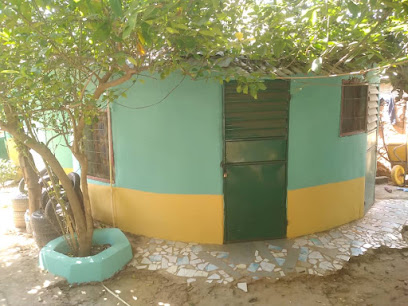
Supermarket Muslim
Explore the vibrant local culture at Supermarket Muslim in Farafenni – a must-visit for unique Gambian goods and culinary delights.
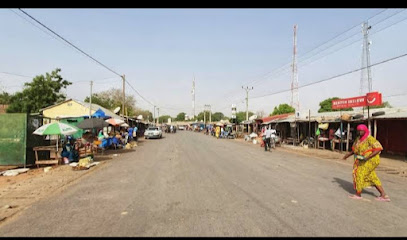
Soma Gassama Shop
Explore local flavors and community spirit at Soma Gassama Shop – a must-visit grocery store in the heart of Soma, Gambia.

M.M.J building materials Shop
Discover quality building materials at M.M.J Building Materials Shop in Bansang, your one-stop destination for construction needs.
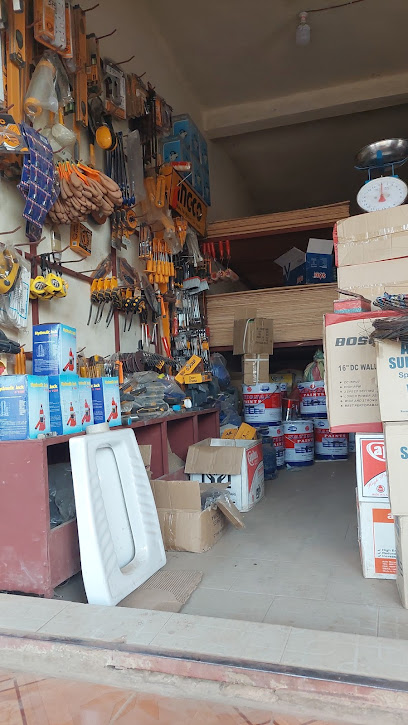
Essential bars & hidden hideouts
Bendula Bar
Experience authentic Gambian cuisine and warm hospitality at Bendula Bar in Janjanbureh, a must-visit for travelers seeking local flavor.
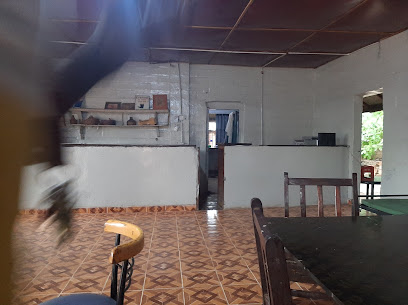
Cheers and Musa's River Side Garden..
Discover the serene beauty of Cheers and Musa's River Side Garden, a peaceful lodging experience along the Gambia River in Janjanbureh.
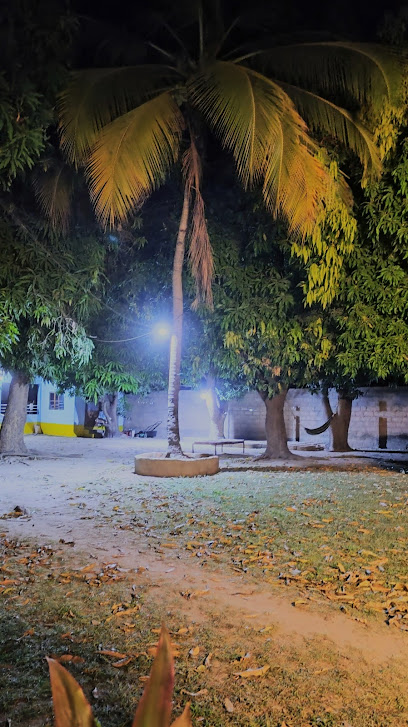
Spanish corner restaurant
Experience authentic Spanish cuisine in Basse Santa Su's vibrant atmosphere, where delightful dishes and warm hospitality await every visitor.
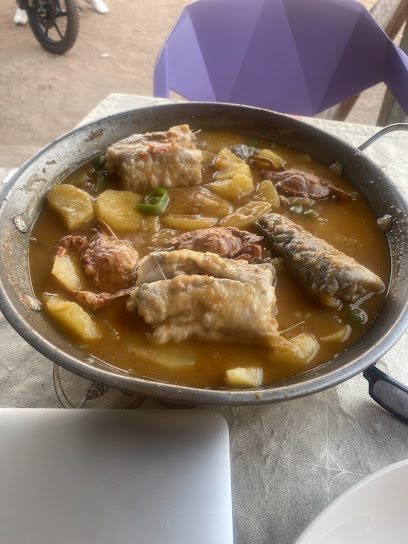
Road Side Pubcamp
Experience the vibrant local culture at Road Side Pubcamp, Janjanbureh's premier bar for travelers seeking a refreshing escape.
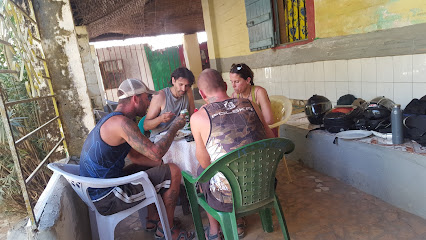
HAPPY CORNER LODGE BAR AND RESTURANT
Experience the authentic flavors and inviting atmosphere of Happy Corner Lodge Bar and Restaurant in Janjanbureh, Gambia.
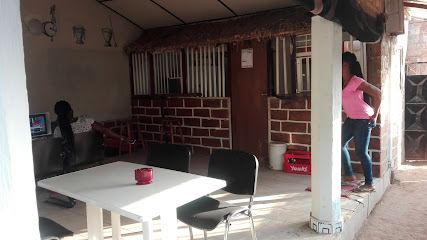
Cheers Bar & Restaurant and Musa River Side Garden
Experience the flavors of Gambia at Cheers Bar & Restaurant, a riverside gem in Janjanbureh, where local culture meets culinary excellence.
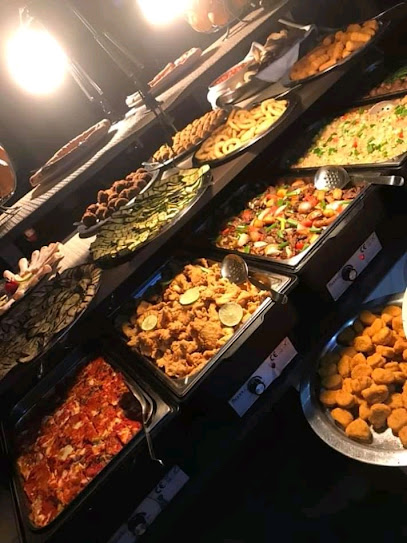
Sunrise and Sunset Restaurant
Discover the flavors of The Gambia at Sunrise and Sunset Restaurant, where culinary delights meet breathtaking views in Janjanbureh.

baobolong beach bar
Experience the serene beauty of Baobolong Beach Bar in Janjanbureh, where relaxation meets local culture on the stunning Gambian coast.

BLACK POT
Experience the rich flavors of Gambian cuisine at BLACK POT in Bansang, a top-rated restaurant perfect for food lovers.
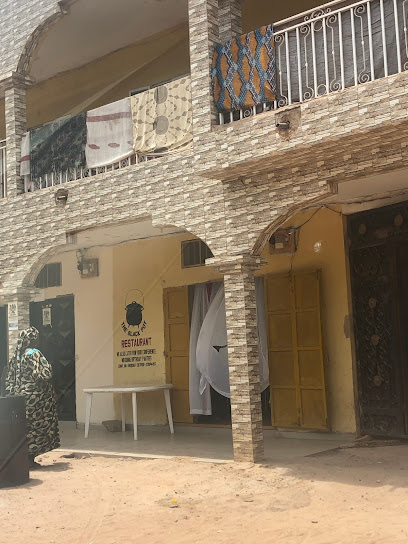
Happy Corner Bar and Restaurant
Experience authentic Gambian cuisine and vibrant local culture at Happy Corner Bar and Restaurant in Janjanbureh.
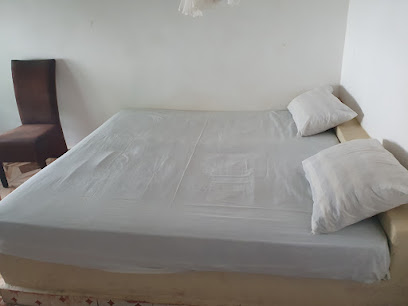
Nyancho Bar & Restaurant janjangbureh
Discover the flavors of Gambia at Nyancho Bar & Restaurant in Janjanbureh, a perfect family-friendly spot for local cuisine and warm hospitality.
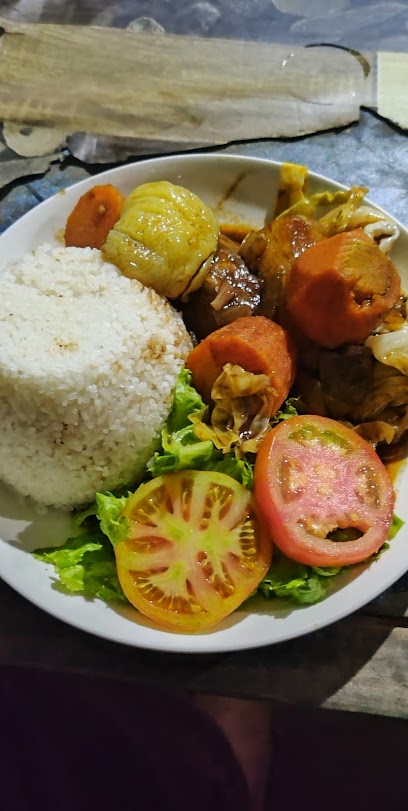
Riverside juice bar and restaurant
Discover the refreshing taste of local cuisine at Riverside Juice Bar and Restaurant in Janjanbureh, a serene riverside retreat.

Poco Loco Beach Bar & Restaurant
Experience the vibrant coastal charm and local flavors at Poco Loco Beach Bar & Restaurant, a must-visit in Bureng.
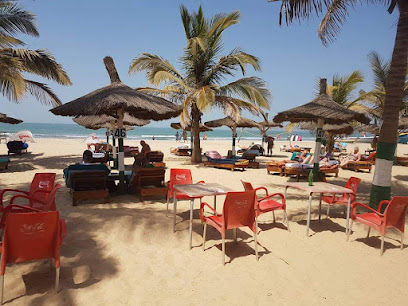
Bentengba Restaurant
Experience the authentic flavors of Gambian cuisine at Bentengba Restaurant in Janjanbureh, where local culture and culinary artistry meet.
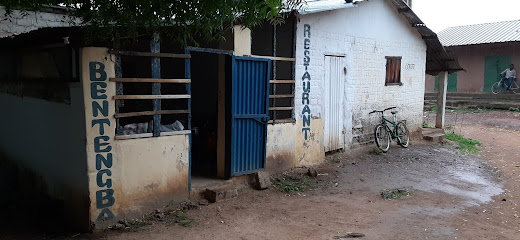
Local Phrases about Janjanbureh Island
-
- HelloSalam aleikum
[sa-lam a-lay-kum] - GoodbyeBa baa
[ba ba] - YesEe
[ee] - NoAlaa
[a-la] - Please/You're welcomeNjuɓen
[nju-ben] - Thank youJerejef
[je-re-jef] - Excuse me/SorryNjaafun
[nja-fun] - How are you?Nanga def?
[nan-ga def] - Fine. And you?Jaama. Nopp?
[ja-ma nop] - Do you speak English?Noppa def Angalee?
[nop-pa def an-ga-lee] - I don't understandMaa laa taw
[ma la taaw]
- HelloSalam aleikum
-
- I'd like to see the menu, pleaseMi yaa kijja menu, jarejef
[mi ya ki-cha me-nu ja-re-jef] - I don't eat meatMaa ka nekk laah
[ma ka nek laah] - Cheers!Bul benn!
[bul ben] - I would like to pay, pleaseMi yaa baax na, jarejef
[mi ya baax na ja-re-jef]
- I'd like to see the menu, pleaseMi yaa kijja menu, jarejef
-
- Help!Ndank ndank!
[ndank ndank] - Go away!Duma def!
[du-ma def] - Call the Police!Dëgët Polis!
[de-get po-lis] - Call a doctor!Dëgët dokter!
[de-get dok-ter] - I'm lostMi nga xale yi
[mi nga xa-le yi] - I'm illMi nga nopp
[mi nga nop]
- Help!Ndank ndank!
-
- I'd like to buy...Mi yaa jëkk...
[mi ya jek] - I'm just lookingMi nga defar
[mi nga de-far] - How much is it?Ñeen laa?
[nyeen laa] - That's too expensiveÑuulul yaa def
[nuu-lul ya def] - Can you lower the price?Noppa laa benn ci nit?
[nop-pa laa ben ci nit]
- I'd like to buy...Mi yaa jëkk...
-
- What time is it?Waan laa jëm?
[waan laa jem] - It's one o'clockNjëb kel
[nje-b kel] - Half past (10)Njëb ci ñent
[nje-b ci nyent] - MorningSuba
[su-ba] - AfternoonKërte
[ker-te] - EveningNgoontu
[ngoon-tu] - YesterdayNopp
[nop] - TodayNopp
[nop] - TomorrowDëgg naa
[deg naa] - 1Benn
[ben] - 2Jox
[jox] - 3Talata
[ta-la-ta] - 4Nëgg
[negg] - 5Juroom
[ju-room] - 6Jëkkër
[jek-ker] - 7Njëb
[nje-b] - 8Delwël
[del-wel] - 9Sët
[set] - 10Fukk
[fukk]
- What time is it?Waan laa jëm?
-
- Where's a/the...?Waa ngi...
[waa ngi] - What's the address?Ñuul yëgëm
[nuul ye-gem] - Can you show me (on the map)?Noppa laa la ne laa (ci map)
[nop-pa laa la ne laa ci map] - When's the next (bus)?Ñooma sa ndaw bi?
[nyoo-ma sa ndaw bi] - A ticket (to ....)Billet (ci ....)
[bil-let ci]
- Where's a/the...?Waa ngi...
History of Janjanbureh Island
-
Janjanbureh Island, also known as MacCarthy Island, was founded in 1832 by the British as a settlement and trading post. It was named after Sir Charles MacCarthy, the British Governor of Sierra Leone. The island quickly became an important center for trade and administration in the region.
-
During the 19th century, Janjanbureh Island played a significant role in the transatlantic slave trade. The island's strategic location along the Gambia River made it a crucial point for the transport and sale of enslaved Africans. The legacy of this dark period is still evident today, with remnants of the slave trade visible in various parts of the island.
-
Under British colonial rule, Janjanbureh Island served as a key administrative center. The British established a military garrison on the island and built various administrative buildings, some of which still stand today. The island was central to the British efforts to control and administer the surrounding region.
-
In the early 20th century, Janjanbureh Island became a hub for education in The Gambia. The island was home to several important schools, including the prestigious Armitage High School, which was founded in 1927. Many of The Gambia's future leaders and intellectuals received their education on the island.
-
Janjanbureh Island is rich in cultural heritage, with a vibrant mix of ethnic groups and traditions. The island hosts several cultural festivals throughout the year, including the popular Janjanbureh Kankurang Festival. This festival, celebrated with traditional music, dance, and masquerades, honors the Kankurang, a protective spirit in Mandinka culture.
-
Today, Janjanbureh Island is a prominent tourist destination known for its historical landmarks and natural beauty. Visitors can explore the island's colonial-era buildings, including the old Governor's House and the Methodist Church. The island is also a gateway to exploring the rich biodiversity of the Gambia River and its surrounding ecosystems.
Janjanbureh Island Essentials
-
Janjanbureh Island, also known as MacCarthy Island, is located in the Gambia River. The nearest international airport is Banjul International Airport (BJL). From Banjul, you can take a domestic flight to Janjanbureh or opt for a road trip, which includes a ferry crossing at the Barra Ferry Terminal. The road trip typically takes around 5 to 6 hours. Alternatively, you can take a river cruise from Banjul to Janjanbureh, offering a scenic and relaxing journey.
-
Once on Janjanbureh Island, transportation options include local taxis, motorbikes, and bicycles. Taxis are the most common and convenient mode of transport for tourists. Bicycles can be rented for a more leisurely exploration of the island. Walking is also a viable option, as the island is relatively small, and many attractions are within walking distance.
-
The official currency in The Gambia is the Gambian Dalasi (GMD). Credit cards are not widely accepted on Janjanbureh Island, so it is advisable to carry enough cash. There are a few ATMs on the island, but they may not always be reliable. It is best to withdraw sufficient cash in Banjul before traveling to the island.
-
Janjanbureh Island is generally safe for tourists. However, it is important to take standard precautions such as avoiding isolated areas at night and keeping an eye on your belongings in crowded places. There are no specific high-crime areas targeting tourists, but being vigilant and aware of your surroundings is always a good practice.
-
In case of an emergency, dial 117 for police assistance or 116 for medical emergencies. The island has a local police station and a medical clinic for basic healthcare needs. It is recommended to have travel insurance that covers medical emergencies. For minor health issues, there are pharmacies where you can purchase over-the-counter medications.
-
Fashion: Do dress modestly, especially when visiting religious sites. Avoid overly revealing clothing. Religion: Do respect local customs and traditions. When visiting religious sites, dress modestly and remove your shoes before entering. Public Transport: Do be respectful to other passengers. Public transport is not as formal, so expect some delays. Greetings: Do greet people with a handshake and a friendly smile. Use the local greeting 'Salaam aleikum.' Eating & Drinking: Do try local dishes and accept food offerings graciously. Don't eat or drink with your left hand, as it is considered impolite.
-
To experience Janjanbureh Island like a local, visit the local markets where you can buy fresh produce and traditional Gambian goods. Engage with locals, as they are friendly and willing to share stories about the island's history and culture. Don't miss exploring the historical sites such as the Wassu Stone Circles and the old colonial buildings. For a unique experience, take a boat ride on the Gambia River to appreciate the island's natural beauty.
Trending Landmarks in Janjanbureh Island
-
Stone Circles of Gambia
-
Jang Jang Burreh Camp
-
Kunta Kinteh island / St. James Fort
-
Maccarthy Island
-
Bendula Bar
-
Slave House
-
Camping Sitaba Lodge
-
Baobolong Camp and Guest House
-
FairPlay Gambia River Holidays
-
Musa's Garden Lodge
-
Gambia Tourism and Hospitality Institute
-
Kankurang Centre
-
Janjanbureh Area Council
Nearby Cities to Janjanbureh Island
-
Things To Do in Soma
-
Things To Do in Farafenni
-
Things To Do in Kaolack
-
Things To Do in Banjul
-
Things To Do in Lamin
-
Things To Do in Brikama
-
Things To Do in Bissau
-
Things To Do in Bakau
-
Things To Do in Serekunda
-
Things To Do in Serrekunda
-
Things To Do in Canchungo
-
Things To Do in Buba
-
Things To Do in Gunjur
-
Things To Do in Quebo
-
Things To Do in Mbour







